Fox Curio’s Floating Bookshop: Live your best shopkeeping life!
Published on Itch.io (Opens in a new window) a little over two years ago, Fox Curio’s Floating Bookshop introduces a pleasant world inhabited by animalfolk, where life lives and thrives along a River — and places one such animal, your character, into the beloved profession of bookselling.
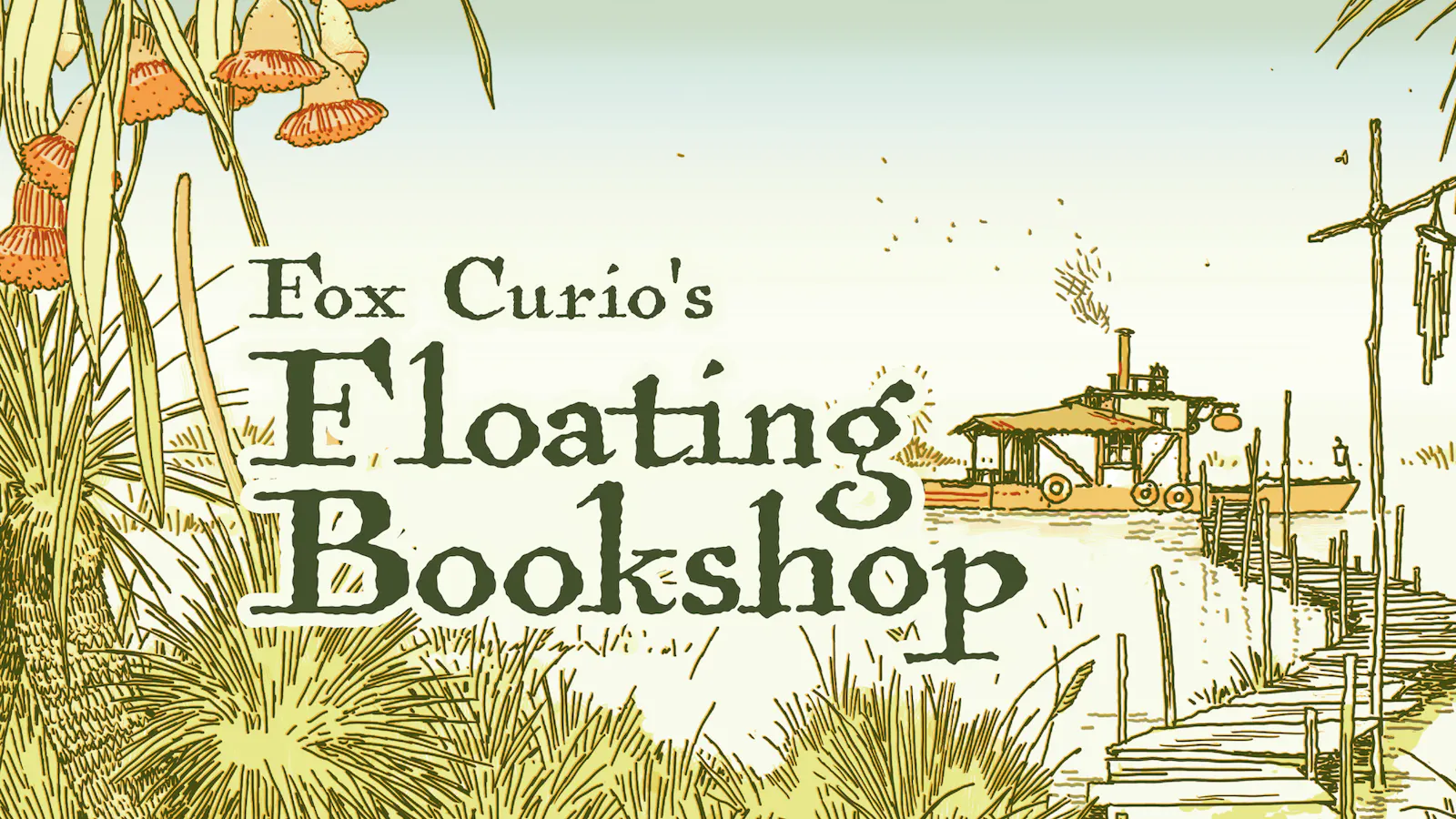
Fox Curio has shown up time and time again in online discussions. People are keeping journals for months, playing here and there, even taking it out of the house, to bars and to hangouts. I myself brought it to a local coffee shop and wrote up some customers with my partner. At over 220 pages, FCFB has game elements that spark the imagination and push you forward, and charts for days. Yet in practice, the game boils down to an endearingly-simple escapist experience.
What Cozy Bookselling Looks Like
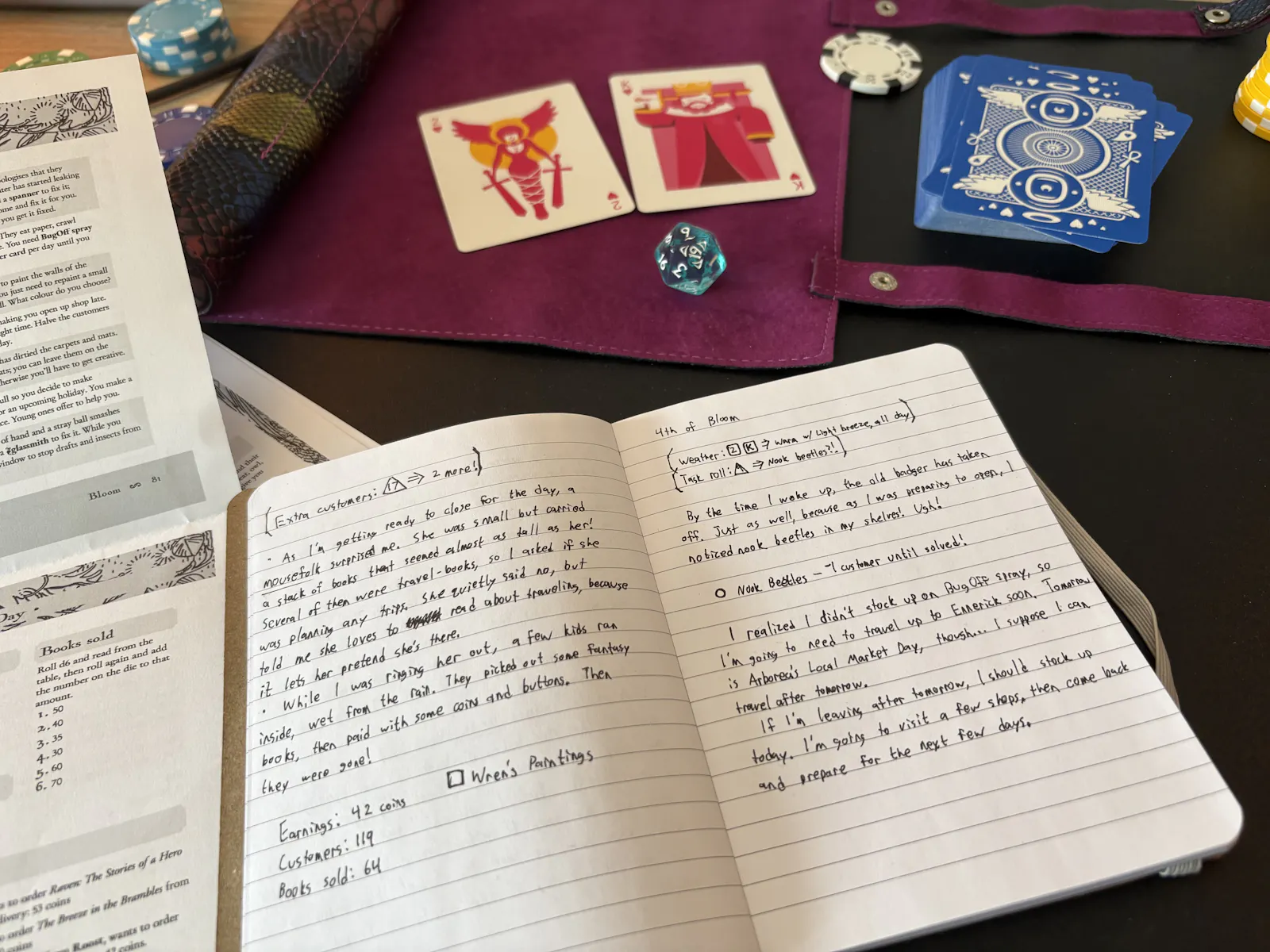
While games like Caught in the Rain design mechanics towards building tension and unexpected outcomes, Fox Curio’s Floating Bookshop is a game where the biggest tension is looking out for the weather, and deciding whether today will be great for rowing. Or, fishing and trying to land a big one. Or, drawing a customer and realizing they’re feeling down today, and could use a pick-me-up. What’s on his mind? Is he going to be okay? Should I say something?
With exception to Amazon, you don’t really “win” at the bookselling business. You don’t usually open a bookstore with the intent of becoming a major tycoon. Books are crafted, sold, bought, and read, out of passion and interest and emotion and desire, be it to learn or to cry or to dream. Surrounding yourself with books is a form of self-expression. Look around you, at your desk, your nightstand, or, maybe even a bookshelf. What’s on the desk, what do you keep on the shelf? Have you read all those books, if any? What does that say about who you are, who you were, and who you want to be?
Surrounding yourself with books is a form of self-expression.
In Fox Curio’s Floating Bookshop, you play an animal — I played a frog, named Moss — and every day you decide to open your doors for business, you meet other animals. Some days you travel, or go fishing, or head out for chores, or stay in for any reason at all. But the most common thing you’ll do is open your door to sell your customers books.
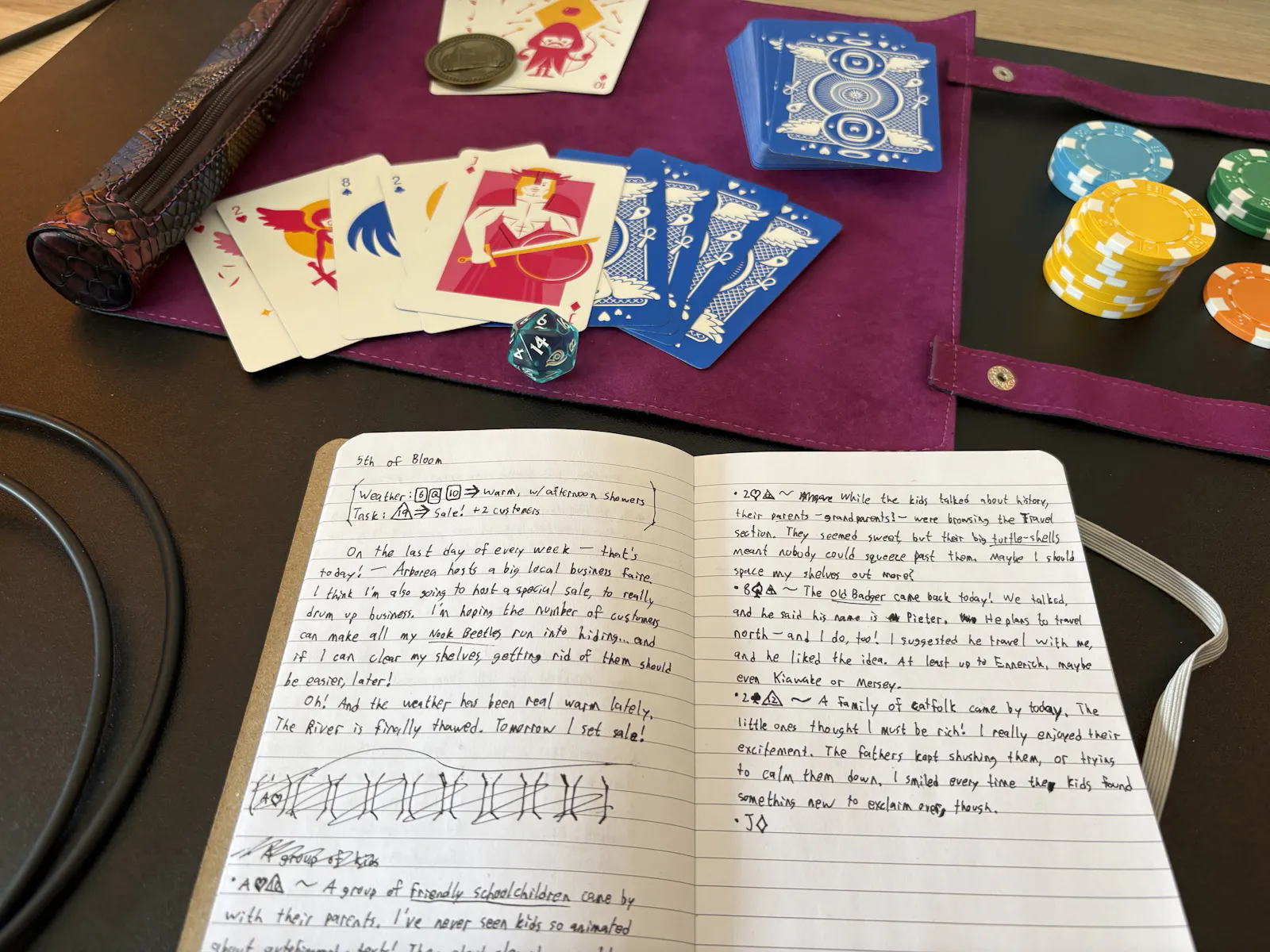
Depending on how nice the weather is, you draw a handful of cards, each card suggesting an interesting customer who stays, chats, makes a scene, boasts loudly about their kids, blocks the door, debates dinner with their spouse, or shows up quietly holding a whole stack of every romance novel in your library.
The game then invites you to journal about them. It’s optional, technically, but it’s nice, if only to stop for a few minutes and really think about life, and to involve yourself into the drama of imaginary lives around town.
Then, around the end of the day, you count your cards, roll some dice, and take note of the total number of customers, how many books sold, and how many coins you brought in. You tally the totals in your notebook… and that’s that.
And when you’re ready — whenever you wish for a change of scenery — you lift anchor and travel on to the next town, to meet a host of all-new faces.
How Mechanics Tell Stories
Or, how patience can give characters time to breathe.
When I first began to play, I should confess, it felt oddly daunting. Tedious, in some ways. Each season has their own weather tables, random events, and book sales tables. Customers have tables. The map has a table. Book genres are another table. Each town has four pages, including a table of shops and items. So many tables, and they’re all over the place!
Then, when you get past the tables and start playing, drawing customers is, truthfully, a lot of fun. But it’s also time-consuming. It takes time to find a character, figure out what they want, and write about the interaction you had with them, weaving it into the ongoing fiction (optionally). Sometimes it can take upwards of 5-10 minutes per card — and that really adds up when you open for a busy day, with 7 or more customers!
The gamer within me wanted to win. I wanted to collect all the upgrades, I wanted to make all the money. I wanted to serve all the customers, I wanted to sell all the books and get all the coins. I picked a starter town based on special orders/quests, thinking it’d be a good winning strategy. And then I started butting my head against how long the days were taking, and how little progress I was getting.
What I came to discover — and, I wish I’d taken this to heart from the very beginning — was that Fox Curio is best appreciated when you give it time to breathe. Like talking to a plant, or sharing stories about work.
I think it clicked when I did exactly that, the first night when I put the game down to eat with my family.
“How was work?”
“Long,” I’d sighed, taking a bite.
“Oh. Any fun stories, at least?”
I finished chewing, thinking about the day I’d just finished. “Well, I got to write about a bumbling raccoon — he was buying a cookbook, you see — and he ran into this pompous cat — I think his name was Mr. Talltail? Anyway, the cat got upset and loudly decried about all the riff-raff in my shop, then left. The jerk didn’t even buy anything! I was so mad. I went to walk it off, and nearly knocked over an old badger, like, this really-old, old-guy badger, who I could tell was from out of town. We got to talking, and I sat him over by the fireplace so he could rest. I felt bad, y’know? It was late, and he’d just arrived in town, and was exhausted and didn’t have a place to stay. So I said he could stay the night.”
They just kinda blinked at me like I was crazy.
And then it clicked. That was fun.
Fox Curio is best appreciated when you give it time to breathe.
I’ve played a number of solo-narrative games before, many of which are designed to be played over 1-2 hours. Fox Curio is designed to be played for a couple of hours across weeks out-of-game. It almost resists being rushed. The mechanics don’t lead to adrenaline-fueled dopamine hits, and there’s no obvious method to game the system.
And… well, that’s the point.
You open the shop (only when you want to), you perform a random task, you serve some customers, and you sell books.
And when you serve customers, you usually get to meet them, and learn about their lives, so that later on you’re left still dreaming about them. Because, to their lives, you’re just a shopkeeper. You’re not a main character in their drama, just like they aren’t main characters in your drama. When they leave your doors, maybe you’ll see them tomorrow, maybe you won’t. Like a leaf along a stream.
It gives you a ton of charming little stories to tell. I think that’s really neat.
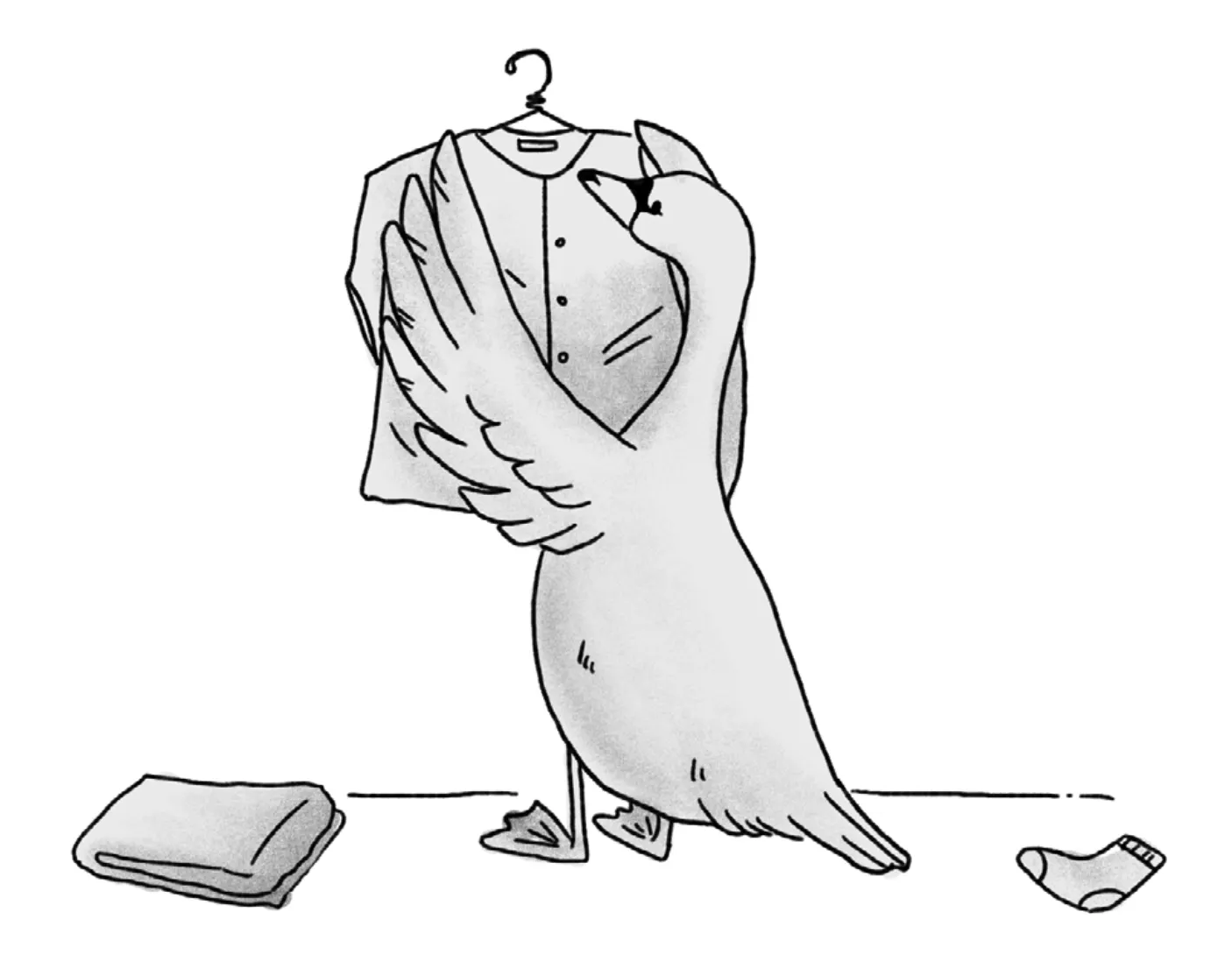
Take It With You!
Another nice thing about Fox Curio is how well it plays on the go.
Inspiration for this section actually comes from u/DatOneGuyYT on Reddit (Opens in a new window), where he showed up to a bar one night with just a journal and pencil. I decided, even before picking this game up, that I want to recreate part of that. So here goes!
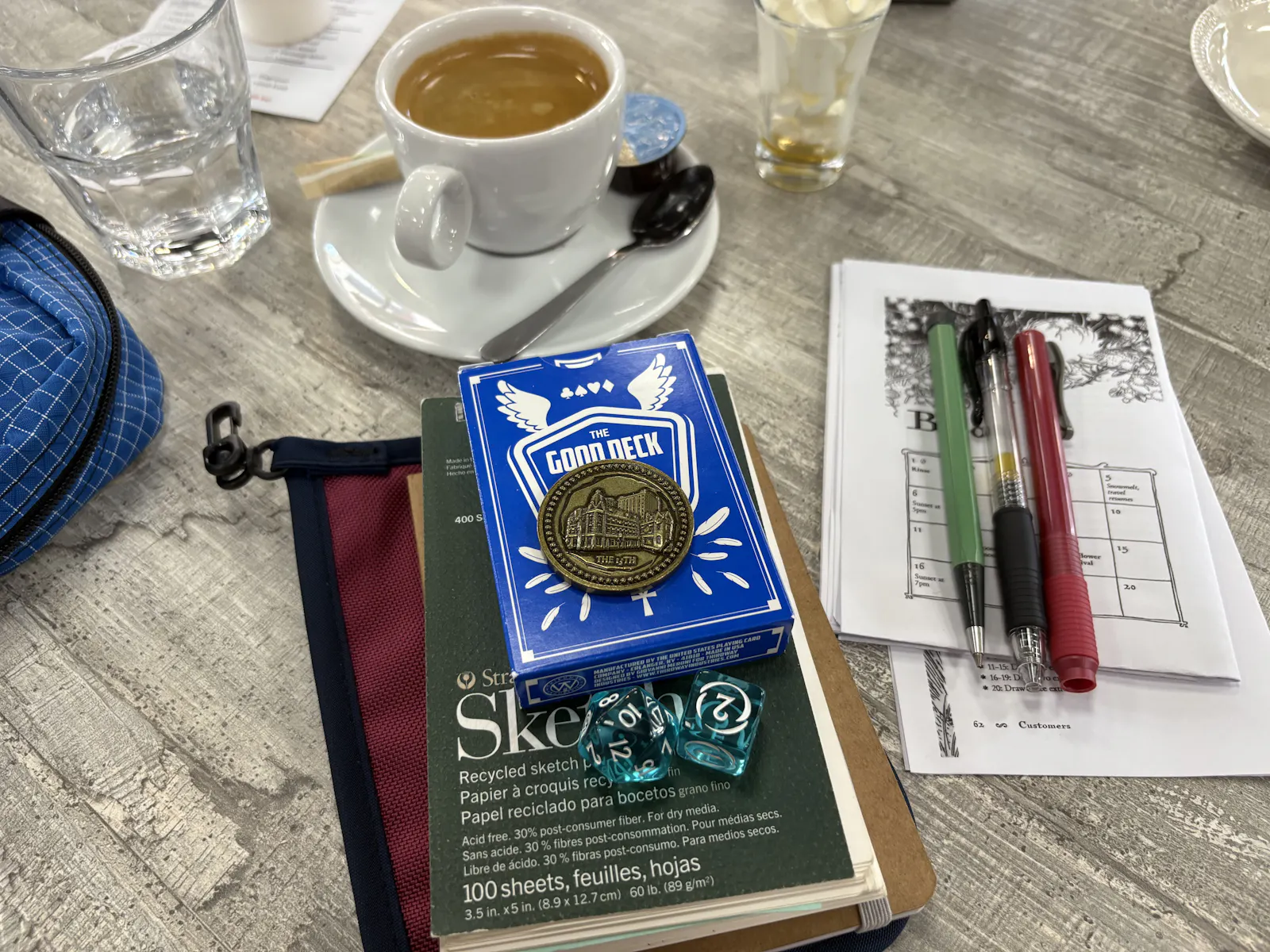
There was a Reddit thread on r/RpgDesign this past week about mechanical impasses, where moments can come up in play where players have to suspend the game and interrupt the flow of fiction in order to look something up. A rule, a number, a table — something that you can’t just handwave, because getting it wrong can mess with the game.
I’d love to write a whole article about this topic, but in context of Fox Curio, the game’s portability is not only one of the reasons I decided to cover it, it’s also a standout feature. Because despite being a 226-page PDF, and despite having lookups spanning across multiple chapters, very few of the “specific” mechanics are distinctly, rigidly mandatory. They serve for calibration, and for a baseline experience, but the game works just as well with vibes, heuristics, and anything that promotes creativity.
Don’t have cards handy? That’s fine, pick whatever weather you want. It isn’t going to break the economy.
Don’t have the customer lookup chart handy? That’s fine, look around, write about some strangers across the street. If that guy in the orange shirt — the one that looks kinda like a leopard — if he walked into a bookshop, right now, I wonder what he’d buy? Does he look like a sci-fi kind of guy, or would he rather read some comedy?
Don’t have dice handy? That’s fine, roll them later, when you get in. You don’t need them right now.
There are a number of mechanics that do require components, but believe me, it’s never been easier to put off bookkeeping until later, until you absolutely have to catch up and just do it 😉
Conclusion
Fox Curio’s Floating Bookshop is a fun gem. I struggle with cozy games, but when I decided to stop fighting it, and to just let myself get lost in the fiction, I came to really appreciate it for what it was: a game that resists gamification.
It might be a little while before I do another cozy-journaling game, but that’s fine. Journaling games like this one live in the head for a long while. Something about putting pen to paper has that effect that you just can’t get from bullet-point lists and one-and-done dice rolls.
…Maybe I should get my bookselling frog her very-own notebook?
For more content like this:
If you aren’t a subscribed member already, consider subscribing to our free newsletter! I aim for 2-4 articles per month that focus on solo RPGs.
Next, I’ll be posting about Star-Trek-inspired spaceships in a crunchier, gamier-game designed for dice goblins — in both solo and group format.
Also, the One-Page RPG Jam is going on! I’ll be covering a number of One-Page titles there, too. Join the newsletter in advance, as I prepare a rapid-fire review fest of some of the best gems.
And, if you super-duper love these articles and want to see lots and lots more, paid memberships encourage me to make more content just like this. There’s bonus content just-for-members, but more importantly, the encouragement goes a long way towards getting more-and-better articles.
Speaking of play reports, click here to follow the story of my frog Moss (Opens in a new window) during her first two weeks of Bloom!
Links & Credits:
Fox Curio’s Floating Bookshop is available on Itch.io (Opens in a new window)
Cards shown are designed by Giovanni @ Thirdway Industries (Opens in a new window). For my recent play, I used the Good Deck (Opens in a new window).
This article was not sponsored. If you would like to become a sponsor, and/or see your work featured in articles like this, please reach out to me either on Discord (@faenre) or via email: nicole@play-brilliant.nl (Opens in a new window)
No AI technologies were used in the making of this article. Proud to be Human!


